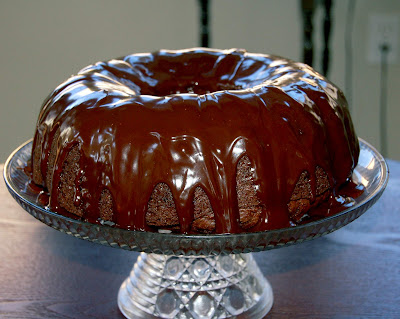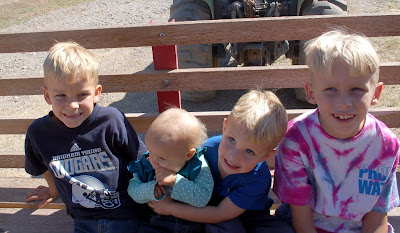Here is an October Poem for you. It's one I love, because it captures so well the strange sadness that comes over me in the Fall. I love the colors and the leaves and the gold light on the mountains, but there's this feeling of loss and endings and passings-on that I can never shake.
I remember Leslie Norris reading Edward Thomas to us fairly often---Thomas was also Welsh---and his poems always seemed to have a touch of sadness to them. To me it seemed like he must have had some premonition of his own death (he died in combat in World War I), but then, I guess it doesn't take any special foreknowledge to be aware of or disturbed by the relentless march of time. Especially in the Fall, when the coming winter looms so large and un-ignorable.
First I love Thomas's comparison of Fall and Spring; the realization that, taken out of context, Fall's changes are just as "fresh" and "new" as spring. It's only what comes next that makes them endings instead of beginnings. And I love the balance he finds in the season---"the touch is not more cool / Than it is warm to the gaze"---because I always notice that too: the coolness of the air balanced with the warmth of the colors, like the extremes of the summer are finally being moderated. Like we're being compensated somehow, or given an extra measure of beauty to bear us up during the winter to come.
I love the line, "now I might / As happy be as earth is beautiful / Were I some other or with earth could turn / In alternation of violet and rose." I guess that is the problem: that as a prisoner of mortality, I know everything is changing, time is passing, my children are growing up and away, my body is slowly breaking down---but unlike the changes of the seasons, these changes are irreversible and permanent. There's no coming "spring" on which to fix our hopes through the dark winter of change, no restarting point where things will go back to the way they once were. And that's why we can't just enjoy the Autumn, carefree and heedless of what's to come. We know each year brings a death of what was---a place we can never really return to.
But then that last quatrain brings a sudden and surprising insight. Here Thomas suggests that maybe true happiness comes WITH and BECAUSE OF this very melancholy: in the contemplation of change and the realization of impermanence, in spite of the pain such thoughts bring. "But if this be not happiness, --who knows? / Some day I shall think this a happy day." Doesn't it remind you of "for if they never should have the bitter they could not know the sweet"? After bringing back all our deepest fears of change and getting old and dying, Thomas suddenly forces us to ask ourselves if we would have it any other way. If we really could change back and forth with the seasons, alternating between new and old, "violet and rose," would we ever feel we had actually progressed? Would we be able to appreciate the times past, if we knew we could re-live them at any point? Would we value rebirth without the death that comes before it?
All right. Enough analysis: now, the poem.
7
I remember Leslie Norris reading Edward Thomas to us fairly often---Thomas was also Welsh---and his poems always seemed to have a touch of sadness to them. To me it seemed like he must have had some premonition of his own death (he died in combat in World War I), but then, I guess it doesn't take any special foreknowledge to be aware of or disturbed by the relentless march of time. Especially in the Fall, when the coming winter looms so large and un-ignorable.
First I love Thomas's comparison of Fall and Spring; the realization that, taken out of context, Fall's changes are just as "fresh" and "new" as spring. It's only what comes next that makes them endings instead of beginnings. And I love the balance he finds in the season---"the touch is not more cool / Than it is warm to the gaze"---because I always notice that too: the coolness of the air balanced with the warmth of the colors, like the extremes of the summer are finally being moderated. Like we're being compensated somehow, or given an extra measure of beauty to bear us up during the winter to come.
I love the line, "now I might / As happy be as earth is beautiful / Were I some other or with earth could turn / In alternation of violet and rose." I guess that is the problem: that as a prisoner of mortality, I know everything is changing, time is passing, my children are growing up and away, my body is slowly breaking down---but unlike the changes of the seasons, these changes are irreversible and permanent. There's no coming "spring" on which to fix our hopes through the dark winter of change, no restarting point where things will go back to the way they once were. And that's why we can't just enjoy the Autumn, carefree and heedless of what's to come. We know each year brings a death of what was---a place we can never really return to.
But then that last quatrain brings a sudden and surprising insight. Here Thomas suggests that maybe true happiness comes WITH and BECAUSE OF this very melancholy: in the contemplation of change and the realization of impermanence, in spite of the pain such thoughts bring. "But if this be not happiness, --who knows? / Some day I shall think this a happy day." Doesn't it remind you of "for if they never should have the bitter they could not know the sweet"? After bringing back all our deepest fears of change and getting old and dying, Thomas suddenly forces us to ask ourselves if we would have it any other way. If we really could change back and forth with the seasons, alternating between new and old, "violet and rose," would we ever feel we had actually progressed? Would we be able to appreciate the times past, if we knew we could re-live them at any point? Would we value rebirth without the death that comes before it?
All right. Enough analysis: now, the poem.
October
The green elm with the one great bough of gold
Lets leaves into the grass slip, one by one, --
The short hill grass, the mushrooms small milk-white,
Harebell and scabious and tormentil,
That blackberry and gorse, in dew and sun,
Bow down to; and the wind travels too light
To shake the fallen birch leaves from the fern;
The gossamers wander at their own will.
At heavier steps than birds' the squirrels scold.
The rich scene has grown fresh again and new
As Spring and to the touch is not more cool
Than it is warm to the gaze; and now I might
As happy be as earth is beautiful,
Were I some other or with earth could turn
In alternation of violet and rose,
Harebell and snowdrop, at their season due,
And gorse that has no time not to be gay.
But if this be not happiness, --who knows?
Some day I shall think this a happy day,
And this mood by the name of melancholy
Shall no more blackened and obscured be.
---Edward Thomas









































































